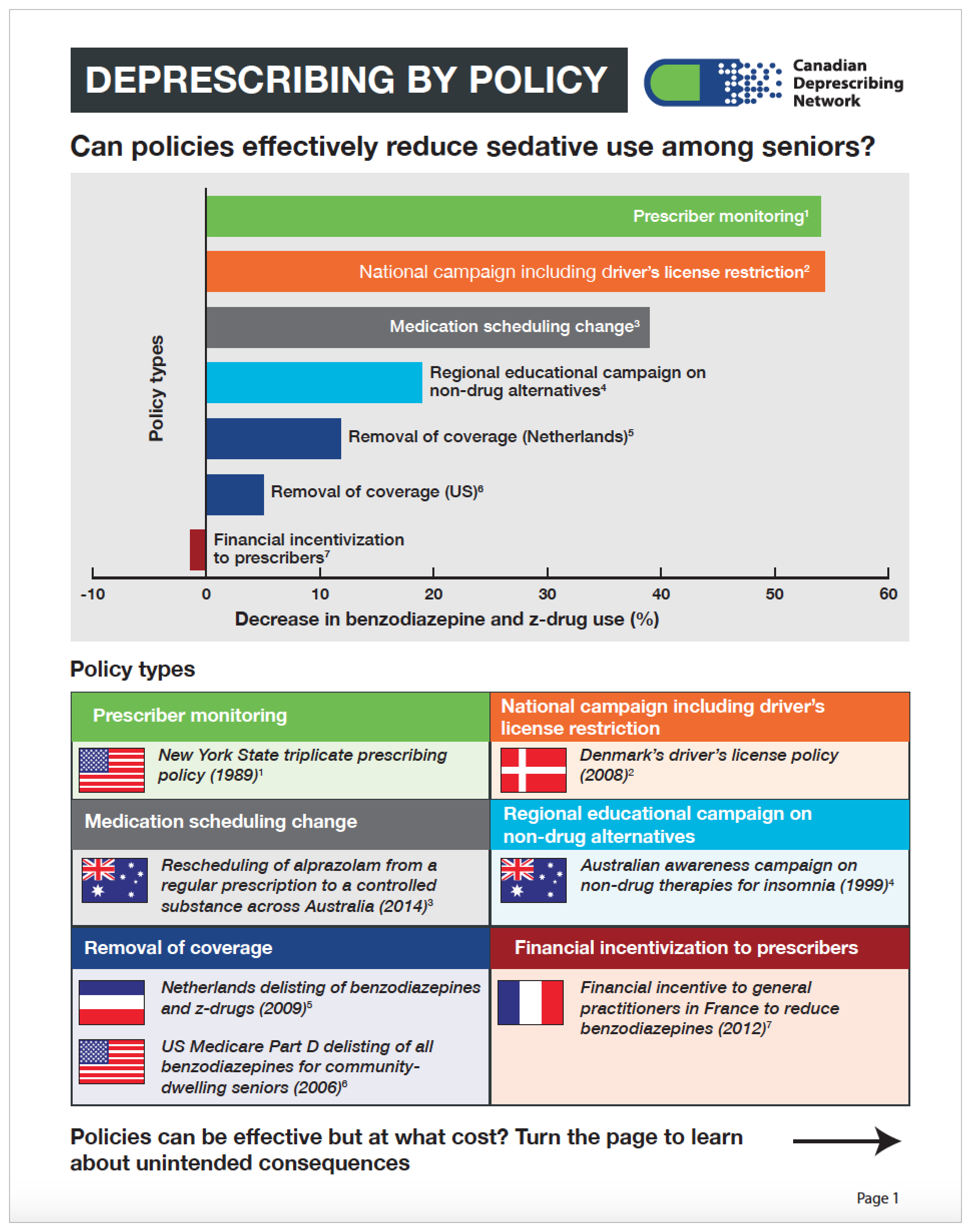Policy Evidence for Medication Appropriateness Interventions
Sustaining knowledge development: key policy publications in peer-reviewed journals and supporting infographics
This paper explores and compares the outcomes of policies aimed at deprescribing sedative-hypnotic medication in community-dwelling older adults. See this infographic to learn more about policy types, efficacy and unintended consequences.
CaDeN also looked into patient education initiatives, which helped people deprescribe sedatives around the world. Check out this infographic to see the findings as well as our educational deprescribing tools for patients.
Cost-Effectiveness of Pharmacist-Led Deprescribing of NSAIDs in Community-Dwelling Older Adults
Is deprescribing cost-effective? The objective of this study was to evaluate the cost-effectiveness of a community pharmacist-led educational intervention for discontinuing non-steroidal anti-inflammatory drugs (NSAIDs). NSAIDs are considered potentially inappropriate medications in older adults.
An economic evaluation that assesses how optimizing drug therapy for older type 2 diabetic adults through the avoidance of drug-induced hypoglycemia could dramatically improve patient health while also generating millions of dollars by saving unnecessary medical costs.
Economic Evaluation of Sedative Deprescribing in Older Adults by Community Pharmacists
A cost-utility analysis from the public health care perspective of Canada estimated the costs and quality-adjusted life-years (QALYs) associated with a community-based, pharmacist-led education intervention delivered simultaneously to older adults and their primary care providers to reduce the use of sedatives (D-PRESCRIBE pragmatic randomized clinical trial) compared to usual care.
Essential publications from our partners: Recommendations for reducing harm from multiple medication use
The Lown Institute is a US-based think tank advocating bold ideas to improve the health system. Eliminating Medication Overload: A National Action Plan is their 2020 report on medication overload in the US and the cultural, educational, and policy changes needed to eliminate it.
We need your help!
We are looking for new partners from all Canadian provinces and territories who want to collaborate on the implementation of large- and small-scale medication appropriateness initiatives. Let’s work together to create intersectional change and eliminate harm from inappropriate medication use.






